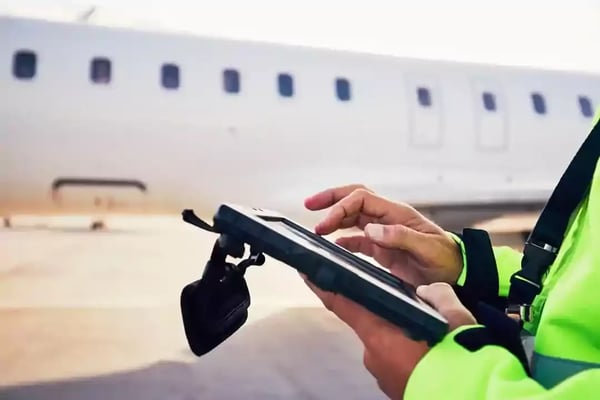There’s no doubt that the aviation industry has been on a wild ride over the past few years. But with change comes innovation, and the landscape of aircraft maintenance is no exception. As we look ahead to 2023 and beyond, here are some of the exciting new developments we can expect for aviation maintenance.
Predictive Analytics Technologies
The use of predictive analytics technologies in aviation maintenance will become increasingly commonplace in the coming years. Predictive analytics involves collecting data from aircraft systems and using it to predict potential failures before they occur. This technology can be used to help reduce downtime and save money on maintenance costs. It also helps airlines identify potential safety risks, which is critical for ensuring passenger wellbeing.
Advanced Repair Techniques
Thanks to advances in materials science, many of today’s aircraft components are now repairable instead of having to be replaced entirely. This means that airplane parts can be repaired with more precision than ever before, reducing waste materials and saving time and money on repairs. Advanced repair techniques such as laser welding and 3D printing are quickly becoming standard practice in many repair shops around the world.
Drone Inspections
Inspections are one of the most time-consuming aspects of aircraft maintenance, but thanks to drone technology this process is becoming much easier. Drones can be used for visual inspection of hard-to-reach areas or for remote monitoring of systems performance during flight operations. This not only improves safety but also reduces costs associated with manual inspections performed by technicians onsite. Additionally, drones can provide real-time data that can be used to detect any potential problems before they become major issues.
Automated Aircraft Technologies
Automated aircraft technologies are already being used today. However, the technology will continue to evolve over time, providing more accurate diagnostics with less human intervention. This means that planes will be safer than ever before as automated systems can detect malfunctions or other problems with far greater accuracy than a human technician can.
Increased Use of 3D Printing
3D printing has revolutionized many industries, including aviation maintenance. With 3D printing technology, companies are now able to manufacture complex parts faster and more cheaply than ever before. In addition, 3D printing allows for parts that were once impossible to produce using traditional methods due to their complexity or size restrictions. This means that aircrafts will be able to fly more efficiently and safely thanks to these new parts created through 3D printing technology.
Improved Connectivity
With improved internet connectivity comes better maintenance capabilities. By connecting technicians to remote databases and resources, they will have access to more information and be able to diagnose issues faster than ever before. In addition, this will also mean better communication between technicians on the ground and those aboard an aircraft as well as increased safety due to real-time monitoring of aircraft performance data from anywhere in the world.
The future of aviation maintenance is here! With new technologies, there’s never been a better time to explore how you could benefit from these innovations in your own business or organization.
We’re excited to see what 2023 brings – stay tuned!


 Andy Graham
Andy Graham
 If you are interested in knowing how you can improve your efficiency in maintenance operations, book a 30-minutes discovery call with us.
If you are interested in knowing how you can improve your efficiency in maintenance operations, book a 30-minutes discovery call with us.

